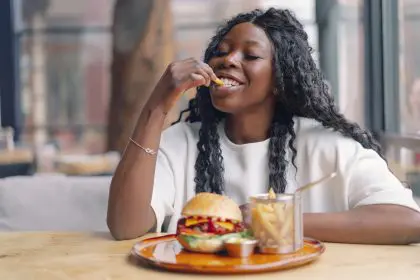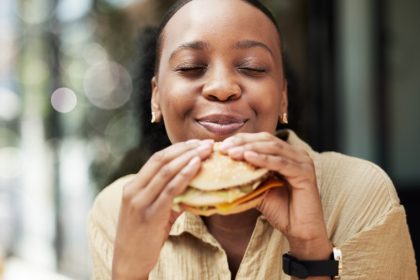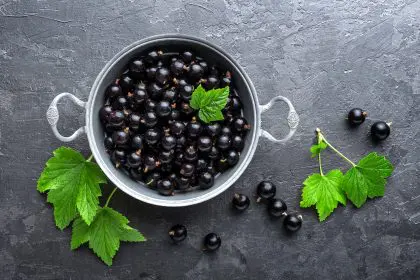The kitchen calls your name just as you’re winding down for the night. That innocent-looking refrigerator light illuminates your midnight cravings, promising satisfaction just a few bites away. But that late-night snack habit might be doing more than just satisfying your hunger—it could be disrupting your sleep, affecting your weight, and impacting your overall health in ways you never realized.
While conventional wisdom suggests avoiding food within three hours of bedtime, the truth about late-night eating isn’t quite so black and white. For some people, nighttime snacking genuinely interferes with sleep quality and digestion. For others, a small pre-bedtime bite might actually improve sleep and help maintain steady blood sugar levels throughout the night.
Understanding how your body processes food in the evening hours can help you make smarter choices about when and what to eat. This knowledge becomes particularly important when you consider that quality sleep plays a crucial role in everything from weight management to immune function and mental clarity.
The relationship between eating and sleeping extends beyond simple comfort. Your digestive system, hormones, and even your brain all respond differently to food consumed close to bedtime compared to earlier in the day. These physiological reactions explain why that seemingly innocent bedtime snack might leave you tossing and turning hours later.
Why late-night noshing disrupts your sleep
When you eat close to bedtime, your body faces a challenging multi-tasking situation. Instead of focusing solely on the important restorative processes that occur during sleep, your system must divert energy toward digestion. This divided attention can significantly impact sleep quality, even if you don’t consciously wake during the night.
Digestion requires considerable energy, especially for foods high in fat, protein, or carbohydrates. While your body works to break down these nutrients, your core temperature rises slightly—directly conflicting with the natural temperature drop needed for deep, restorative sleep. This subtle interference can prevent you from reaching the most beneficial sleep stages.
Lying down shortly after eating increases the risk of acid reflux, as stomach contents can more easily flow backward into the esophagus in this position. The resulting heartburn or indigestion not only causes discomfort but often leads to fragmented sleep patterns with multiple brief awakenings that you might not even remember the next day.
Certain foods consumed before bed affect the production and regulation of sleep hormones. Heavy carbohydrate loads can temporarily boost serotonin, making you feel sleepy initially, but the subsequent blood sugar crash a few hours later may trigger stress hormones that wake you prematurely. Similarly, foods containing tyramine (like aged cheeses) can stimulate brain activity right when you’re trying to wind down.
The quality of your sleep affects hormone regulation throughout the following day, influencing hunger signals and metabolism. Poor sleep resulting from late-night eating creates a problematic cycle—disrupted sleep leads to increased hunger hormones the next day, potentially causing more late-night eating, and continuing the pattern of sleep interference.
The hidden weight connection
Beyond sleep disruption, late-night eating patterns may influence weight management through several mechanisms. Understanding these connections helps explain why identical calorie consumption might affect your body differently depending on when those calories are consumed.
Your body’s circadian rhythm influences metabolic function, with natural efficiency typically decreasing in the evening hours. This means that the same meal eaten at dinner versus lunch might be processed differently, with evening calories more likely to be stored as fat rather than burned for immediate energy needs.
Eating when your body expects sleep sends confusing signals to your digestive system and metabolic regulators. This misalignment between eating patterns and circadian rhythms may contribute to insulin resistance over time, making weight management increasingly challenging.
Late-night eating often involves mindless consumption rather than mindful meals. Evening snacking frequently occurs while watching television or scrolling through phones, leading to reduced awareness of portion sizes and total consumption. This distracted eating commonly results in consuming significantly more calories than intended.
The types of foods typically chosen for late-night snacks often compound these issues. Evening cravings tend toward high-calorie, low-nutrient options like ice cream, chips, or cookies—foods that provide momentary satisfaction but little nutritional value and substantial caloric density.
For some individuals, nighttime eating represents a form of emotional eating triggered by stress, boredom, or habit rather than true hunger. This pattern can establish problematic relationships with food that extend beyond simple calorie considerations.
When late-night eating makes sense
Despite the potential drawbacks, certain situations may actually warrant eating close to bedtime. Recognizing these exceptions helps avoid unnecessary restriction while supporting health needs.
People with blood sugar regulation issues, particularly those with diabetes or hypoglycemia, may need strategic nighttime snacking to maintain stable glucose levels throughout sleep. For these individuals, going too long without eating can trigger problematic blood sugar drops during the night, potentially causing disrupted sleep, nightmares, or even dangerous hypoglycemic episodes.
Active individuals with high energy needs sometimes benefit from pre-bed nutrition. Athletes in intense training phases, those recovering from injury, or individuals with naturally fast metabolisms may require additional calories before sleep to support tissue repair and recovery processes.
Those taking certain medications may need to coordinate evening food intake with their dosing schedule. Some prescriptions require food for proper absorption or to prevent stomach irritation, making a small evening snack medically necessary regardless of proximity to bedtime.
Work schedules that fall outside traditional hours often necessitate adjusted eating patterns. Night shift workers, emergency responders, and others with irregular schedules need to adapt conventional eating wisdom to support their unique lifestyle demands and energy requirements.
People recovering from disordered eating may benefit from consistent eating patterns that include evening nutrition. For these individuals, rigid food timing rules might trigger unhealthy restriction patterns, making flexible meal timing—including evening snacking when hungry—an important part of recovery.
Smart choices for unavoidable nighttime hunger
When late-night eating becomes necessary or simply unavoidable, making strategic food choices can minimize potential negative effects while satisfying genuine hunger.
Opt for snacks combining modest amounts of complex carbohydrates with small portions of protein or healthy fat. This balanced approach provides sustained energy without dramatic blood sugar fluctuations that might disrupt sleep. Good examples include a small handful of nuts with a few dried cherries, or half a banana with a teaspoon of almond butter.
Prioritize foods containing natural sleep-promoting compounds when possible. Tart cherries provide natural melatonin, while foods like turkey, milk, and bananas contain tryptophan, which supports serotonin production. These options may actually enhance sleep quality rather than interfering with it.
Keep portions small and well-defined to prevent mindless overeating. Using small dishes and pre-portioning snacks helps maintain control even when willpower diminishes in the evening hours. This simple strategy prevents what might have been a reasonable snack from expanding into a full second dinner.
Consider timing even within the evening hours. If hunger strikes after dinner, try to address it at least 90 minutes before lying down. This timing compromise allows for some initial digestion to occur while you’re still upright, reducing reflux risk while still responding to genuine hunger cues.
Avoid trigger foods that commonly disrupt sleep or digestion. While individual responses vary, common culprits include chocolate (contains caffeine), aged cheeses (contain tyramine), spicy foods (can cause heartburn), and alcohol (disrupts sleep cycles even if it initially causes drowsiness).
Foods to always avoid before bed
Certain foods consistently cause problems when consumed close to bedtime and are best saved for daytime hours regardless of hunger levels.
Caffeine-containing items should be avoided within 8-10 hours of bedtime. This timeline may surprise many people who don’t realize that caffeine has a half-life of approximately 5-6 hours in most adults. This means that half the caffeine from a 3 p.m. coffee may still be active in your system at 9 p.m., potentially interfering with sleep onset.
High-fat foods require extended digestion time and can cause discomfort when consumed before bed. Fried foods, creamy desserts, and fatty meats like bacon or sausage often lead to acid reflux or indigestion when lying down follows shortly after consumption.
Very sweet treats trigger blood sugar spikes and subsequent crashes that can wake you during the night. The initial sugar high may help you fall asleep faster, but the resulting drop in blood glucose hours later often causes sleep disruption during crucial deep sleep phases.
Spicy foods stimulate the digestive system and can raise core body temperature—both effects directly opposing the physical conditions needed for quality sleep. The resulting heartburn or digestive discomfort frequently causes middle-of-the-night awakenings.
Alcohol deserves special caution despite its seemingly sleep-inducing effects. While alcoholic beverages may help you fall asleep initially, they significantly disrupt sleep architecture, reducing REM sleep and causing fragmented sleep patterns during the second half of the night.
Understanding your personal late-night eating response
Individual differences in metabolism, digestion, and sleep patterns mean that generic advice about late-night eating won’t apply equally to everyone. Developing awareness of your personal response helps create guidelines tailored to your unique physiology.
Keep a simple food-sleep journal for 1-2 weeks, noting evening food intake (including timing and specific foods) alongside basic sleep quality measures like how long it took to fall asleep, whether you woke during the night, and how rested you felt in the morning. This data collection often reveals patterns that generic advice might miss.
Pay attention to next-day energy levels and hunger patterns following different evening eating scenarios. Some people notice increased morning appetite after evening fasting, while others experience more stable energy with a small bedtime snack. These observations provide valuable personalized feedback.
Consider your personal family health history, as genetic factors influence how your body processes food at different times. People with family tendencies toward diabetes or metabolic issues may benefit from different evening eating strategies than those with different genetic backgrounds.
Acknowledge the role of age and hormonal status in nighttime eating responses. As the body ages, digestion typically slows, and sleep becomes lighter, potentially making late-night eating more problematic than it might have been at younger ages.
Experiment thoughtfully with different approaches rather than adhering rigidly to general rules. Try varying your evening eating routine for several days at a time, noting differences in sleep quality and morning energy to determine your optimal pattern.
Creating your personal late-night eating strategy
Developing a sustainable approach to evening eating involves balancing physiological needs with lifestyle realities and personal preferences.
Establish a consistent dinner timing that works with your schedule while allowing maximum digestion time before sleep. Even shifting your evening meal 30-60 minutes earlier can significantly impact sleep quality without requiring major lifestyle adjustments.
Plan ahead for known evening hunger by incorporating slightly more protein and fiber at dinner, nutrients that provide longer-lasting satiety. This proactive approach often prevents problematic late-night hunger without requiring additional snacking.
Create a short list of pre-approved evening snacks that satisfy hunger without disrupting sleep. Having these options readily available helps avoid impulsive choices when willpower is diminished by fatigue. Store these options prominently in your kitchen as the default evening choices.
Consider implementing a kitchen “closing time” that aligns with your sleep schedule, ideally allowing 2-3 hours between your last bite and bedtime. This simple boundary creates helpful structure while still acknowledging occasional exceptions when truly necessary.
Develop alternative evening routines that don’t center around food. Many late-night eating habits stem from boredom or routine rather than genuine hunger. Engaging in enjoyable non-food activities like reading, gentle stretching, or crafting can redirect evening focus away from unnecessary eating.
The healthiest approach to late-night eating ultimately balances physiological wisdom with lifestyle realities. Rather than adhering to rigid rules about never eating after certain hours, develop awareness of how your unique body responds to evening food timing. This personalized understanding allows you to make informed choices that support both immediate comfort and long-term health.
By recognizing the real impacts of late-night eating while acknowledging legitimate exceptions, you can develop a sustainable approach that honors both your body’s needs for proper digestion and quality sleep. This balanced perspective replaces black-and-white thinking with nuanced wisdom about when to indulge that evening craving—and when to simply go to bed.


















